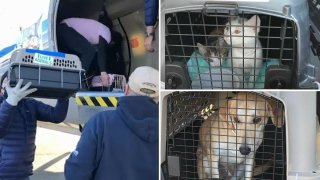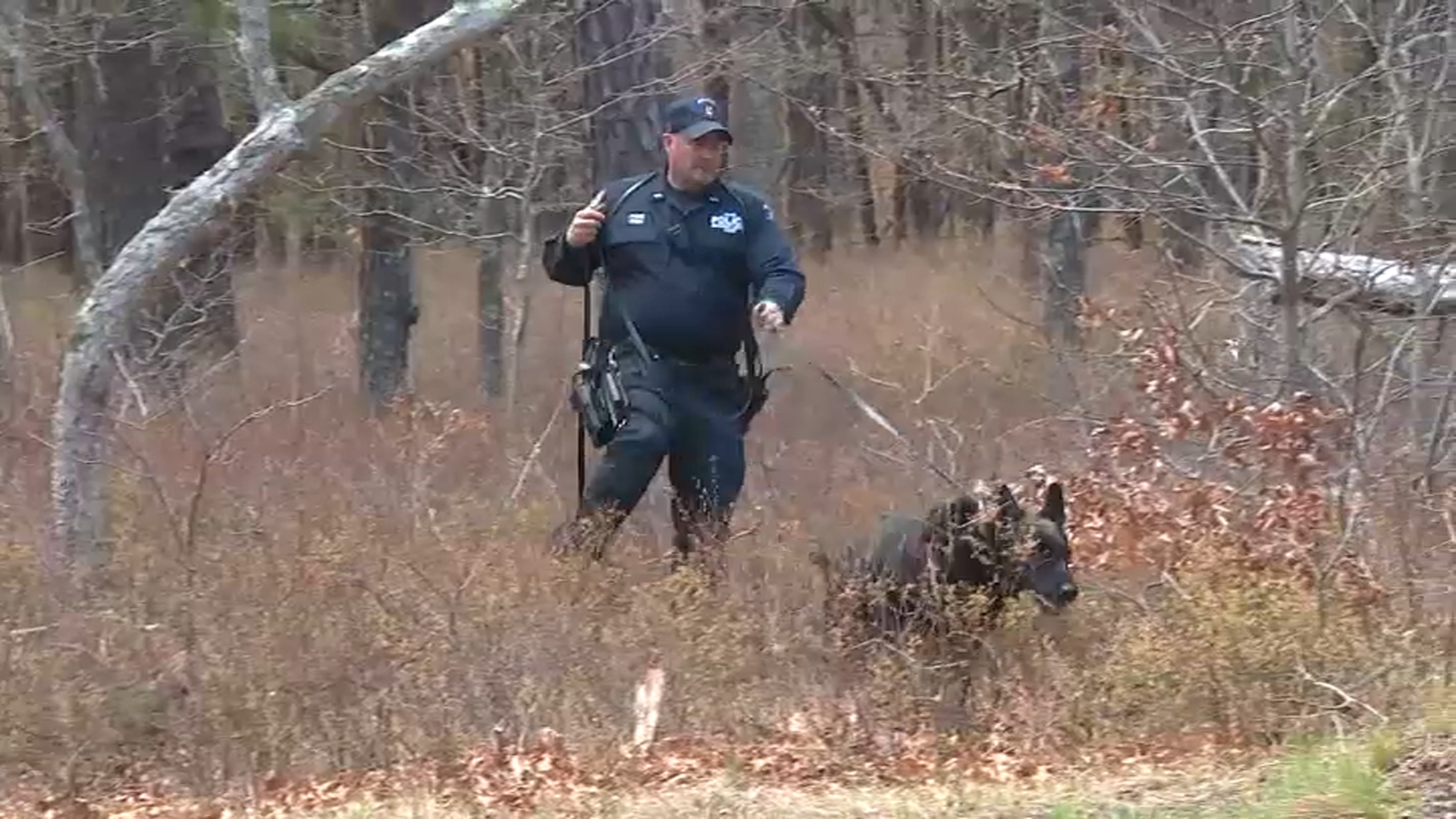
Some very lucky dogs and cats from storm-battered Texas will have new homes here in the tri-state as soon as the end of this week.
Dozens of cats and dogs were flown to New Jersey over the weekend. They were relocated from shelters that had no power or water due to the winter storm and dangerously low temperatures that ravaged Texas, although most of the dogs and cats came from the Humane Society of North Texas.
The American Society for the Prevention of Cruelty to Animals (ASPCA) partnered with "Wings of Rescue" to fly the animals to Morristown Airport.
The animals are adjusting to their new lives now, but will soon be available for adoption at St. Hubert's Animal Welfare Center in Madison.
Get Tri-state area news and weather forecasts to your inbox. Sign up for NBC New York newsletters.
Since 2016, St. Hubert’s WayStation transport program has moved over 20,000 animals from areas of need to places of opportunity through a network of more than 80 sheltering organizations. Additionally, the program helps move homeless animals to safety after natural disasters.
“In the animal welfare community when disaster strikes, we’re all in it together,” said Colleen Harrington, Director of St. Hubert’s WayStation program, in a statement. “Humane Society of North Texas is a valued partner of ours and this has been an extremely difficult time for them. Staff have been camping out at the shelter, ensuring the safety and well-being of their animals...We know that this special group of pets will be adopted into loving homes very soon. “
Matt Bershadker, President & CEO of the ASPCA, said the fallout from the power outages and lack of water due to the winter weather in Texas, have created "dire circumstances for animals for animals across the state."
News
“We’re proud to work with our partners to relocate more than 170 homeless animals to safer areas, which also frees resources at animal shelters to help them continue to serve their communities,” Bershadker said.



